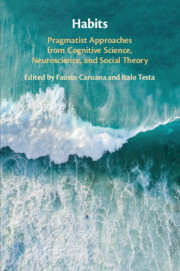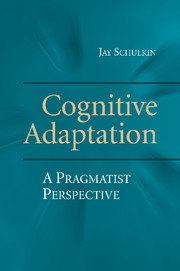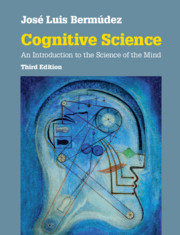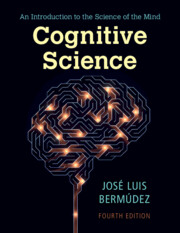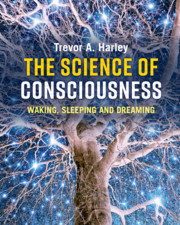Habits
This book evaluates the potential of the pragmatist notion of habit possesses to influence current debates at the crossroads between philosophy, cognitive sciences, neurosciences, and social theory. It deals with the different aspects of the pragmatic turn involved in 4E cognitive science and traces back the roots of such a pragmatic turn to both classical and contemporary pragmatism. Written by renowned philosophers, cognitive scientists, neuroscientists, and social theorists, this volume fills the need for an interdisciplinary account of the role of 'habit'. Researchers interested in the philosophy of mind, cognitive science, neuroscience, psychology, social theory, and social ontology will need this book to fully understand the pragmatist turn in current research on mind, action and society.
- Provides the first comprehensive, interdisciplinary account of the notion of habit
- Offers a conceptual background which benefits the dialogue between social theory and cognitive sciences
- Contributes to a pragmatist turn in current research on mind, action and society
Reviews & endorsements
'This informative and ground-breaking anthology is an invaluable resource for anyone trying to reimagine the foundations of the mind. Exploring the concept of habit through the lens of pragmatism, the book maps out pragmatist positions and how such positions can extend, embed, enact, and embody current debates in the cognitive and social sciences.' Ellen Fridland, Lecturer in Philosophy, King's College London, UK
'This volume offers a fascinating, interdisciplinary approach to understanding important questions about habits. With an emphasis on dissolving the dualism between the automatic actions of the body and the deliberate movements of the mind, it leaves one wondering whether the twilight of philosophy of the mind, as it is traditionally practiced, is approaching.' Barbara Gail Montero, Professor of Philosophy, City University of New York, USA
'The authors give us what we need: a place to begin. This landmark book takes a much-needed jump in the right direction by placing habit in the center of our field. I don't think you can study habit without using the original contributions assembled here.' Alva Noë, Professor of Philosophy, University of California at Berkeley, USA
'A great book in which philosophers, psychologists and neuroscientists explore how habits arise and shape many critical features of our social and cultural life.' Corrado Sinigaglia, Professor of Philosophy of Science, University of Milan, Italy
'Philosophers and neuroscientists have long treated habitual actions as reason's shadow, as rigid mechanical routines. This stunning collection of essays excavates a rich counter-history of the neurophilosophy of habits. The contributors combine rigorous original scholarship with ambitious updates of the great pragmatist philosophers' subtle views on embodied cognition and human plasticity.' John Sutton, Professor of Cognitive Science, Macquarie University, Australia
Product details
No date availablePaperback
9781108736367
478 pages
226 × 152 × 26 mm
0.679kg
Table of Contents
- Introduction: the pragmatist reappraisal of habit in contemporary cognitive science, neuroscience, and social theory: introductory essay Italo Testa and Fausto Caruana
- Part I. The Sensorimotor Embodiment of Habits
- Section 1. The Neuroscience of Habits:
- 1. Habit formation, inference and anticipation: continuour themes in a pragmatist neuroscientific perspective Jay Schulkin
- 2. Habits and self: a temporal view Georg Northoff
- Section 2. Habits and Emotions:
- 3. Emotional Mirroring Promotes Social Bonding and Social Habits: An Insight from Laughter Fausto Caruana
- 4. Emotions, habits, and skills: action-oriented bodily responses and social affordances Rebekka Hufendiek
- Section 3. Habits and Skills:
- 5. What the situation affords: habits and heedful attitudes in skilled performance Katsunori Miyahara, Tailer G. Ransom and Shaun Gallagher
- 6. Swim or sink: habit and skilful control in sport performance Massimiliano L. Cappuccio and Jesús Ilundáin-Agurruza
- Part II. The Enactment of Habits in Mind and World
- Section 4. Habits and the Background of Action:
- 7. The backside of habit: notes on embodied agency and the functional opacity of the medium Maria Brincker
- 8. Habit, ontology, and embodied cognition without borders: James, Merleau-Ponty, and Nishida Jonathan McKinney, Maki Sato, and Anthony Chemero
- Section 5. Habits, Intentionality, and Language:
- 9. Clarifying the character of habits: understanding what and how they explain Daniel D. Hutto and Ian Robertson
- 10. Habits, meaning and intentionality: a Deweyan reading Pierre Steiner
- 11. Language, habit and the future Elena Clare Cuffari
- Section 6. Habits and Moral Life:
- 12. Moral habit Mark Johnson
- 13. Habits of goodness: how we come to be virtuous without moral laws Teed Rockwell
- Part III. Socially Embedded and Culturally Extended Habits
- Section 7. Habits, Human Development, and Social Practices:
- 14. Growing minds: pragmatic habits and enculturation Richard Menary
- 15. 'Habit is thus the enormous flywheel of society': pragmatism, social theory, and cognitive science Stephen Turner
- 16. Habit and the human lifespan: toward a Deweyan account of aging and old age Shannon Sullivan
- Section 8. Habits, Cultural Artifacts, and Aesthetics:
- 17. Habits and enculturated mind: pervasive artifacts, predictive processing and expansive habits Joerg Fingerhut
- 18. Brain, body, habit and the performative quality of aesthetics Vittorio Gallese
- Section 9. Habits, Social Ontology, and Institutions:
- 19. A habit ontology for cognitive and social sciences: methodological individualism, pragmatist interactionism, and 4E cogniton Italo Testa
- 20. Social ontology between habits and social interactions Roberto Frega
- 21. Social reproduction, feminism, and Deweyan habit ontology Fredico Gregoratto and Arvi Särkelä.

